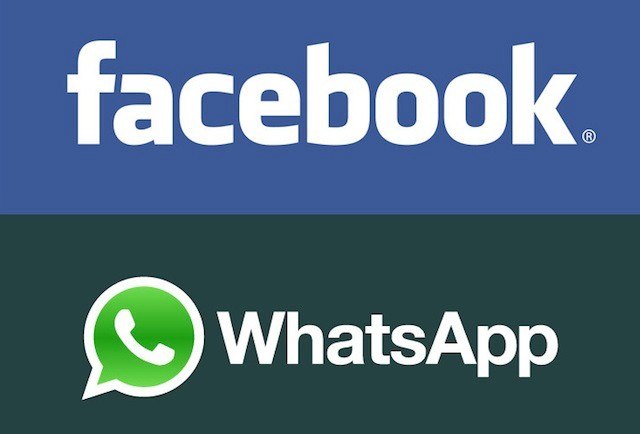Global telecom operators are going to put more pressure and officially ask Internet, social media and messaging companies — Facebook, WhatsApp, YouTube, etc — to share their revenue for carrying traffic on their networks.
The discussion will take center stage at the Mobile World Congress (MWC) 2014, Telegraph reported today.
Britain’s 4G telecom service provider EE is gaming for this.
Olaf Swantee, chief executive of EE, said: “This is something we’re looking at now. It’s not going to be a multibillion pound business. Most of our revenues will still come from charging customers for access. But it is interesting.”
Mobile operators will increase pressure on internet companies to pay them for carrying traffic following Facebook’s $19 billion acquisition of WhatsApp. These telecoms do not want to sacrifice on their SMS revenue and offer unlimited data bandwidth to social media users without adequate compensation.
Mobile World Congress 2014 will be the right platform because Facebook CEO Mark Zuckerberg and WhatsApp’s co-founder Jan Koum are speaking at the event. The largest telecom event will also see participation from global mobile operators.
Deloitte India’s 2014 TMT Predictions said mobile instant messaging and SMS are likely to be regarded as direct competitors in 2014.
Deloitte predicts that in 2014 instant messaging services on mobile phones (MIM) will carry more than twice the volume (50 billion versus 21 billion per day) of messages sent via a short messaging service (SMS). This is a significantly greater ratio than in 2012, when 1.1 instant messages were sent for every text message.
Growth in MIM is coming at the expense of SMS and mobile carriers. This is one of the reasons for the additional pressure that is mounting in select European markets.
Deutsche Telekom-owned T-Mobile in December said its GoSmart prepaid service would offer free access to Facebook, whether or not they subscribe to T-Mobile’s Internet service. Customers can use Facebook, but at slower speeds, and they are not be able to click on links to other sites unless they pay for data.
Earlier, Vodafone CEO Vittorio Colao and Facebook discussed about a zero rate deal to cover emerging markets. However, the social network was unwilling to pay for the special treatment.
Many reasons
WhatsApp has 450 million monthly active users. Facebook aims this number to grow to 1 billion users. This means more pressure on telecom networks.
With 19 billion messages and 600 million photos sent each day, WhatsApp serves nearly the same text-message volume as the entire telecom industry, which is around a $100 billion business for carriers.
“Mobile operators are in an interesting position: Facebook, one of their key content partners, now owns an application that has been a major catalyst in the decline of SMS revenue and, for some, SMS traffic,” said Pamela Clark-Dickson, an analyst at Informa Telecoms & Media, in a report.
“The potential souring of the relationship between the operators and Facebook brought on by the acquisition will be mitigated somewhat by the fact that mobile subscribers will continue to demand access to both applications, resulting in sustained generation of mobile data revenue for operators,” said Clark-Dickson.
WhatsApp operates under a freemium business model: The app is free for the first year and users pay 99 cents per year thereafter.
Carina Goncalves, telecommunications market analyst Frost & Sullivan, said: “The possibilities of convergence with Facebook are very large, and can be disruptive to the market of SMS operators in the long term.”
The entire industry is not confident about the success of the Facebook- WhatsApp deal.
Bruno Tasco, analyst at technology market, Frost & Sullivan, said: “Companies that expand beyond messaging and develop a platform for distributing content will win in this market.”
Messaging apps are currently used by more than half of smartphone users worldwide and WhatsApp dominates this market with a 45 percent user market share. When WhatsApp recorded an all-time high of 10 billion outgoing messages in a single day in June 2013, this equated to more than 30 messages sent per person per day.
Analysys Mason says the number of users on smartphones to increase from about 1 billion in 2013 to almost 3 billion in 2018.
Stephen Sale, principal analyst of Analysys Mason’s Mobile Services and Next-Generation Services research programs, said: “We estimate that IP messaging volumes were over 10 trillion in 2013 and expect them to almost double in 2014 and will reach 37.8 trillion in 2018.”
Ovum says the social messaging market is growing rapidly, with messaging volumes to reach 69 trillion with subscribers growing to 1.8 billion by the end of 2014 according to Ovum forecasts.
“WhatsApp will enhance Facebook’s mobile strategy and make the service grow faster and be stickier with mobile first users. Facebook will in turn provide WhatsApp with the funds and resources it needs to develop the service and become an even stronger competitor in an increasingly over crowded messaging market,” said Eden Zoller, principal analyst, Consumer Telecoms, Ovum.
Facebook is paying more than double its annual revenue for a chat program that has little revenue. The purchase price is slightly more than the market value of Sony Corp.
WhatsApp is much stronger than Facebook Messenger in Europe, Latin America, Africa and Australia and has attracted users at a time when it appears that young people are turning away from Facebook.
Facebook is paying $42 per user, compared with a market value per user of $170 for Facebook and $212 for Twitter, Deutsche Bank’s Ross Sandler said.
WhatsApp’s user base is less than half that of Facebook’s 1.2 billion but the chat program’s users are more active. On any given day, 70 percent of WhatsApp users are active, compared with 62 percent for Facebook. WhatsApp’s users are expected to reach 1 billion by 2015.
Baburajan K
[email protected]






